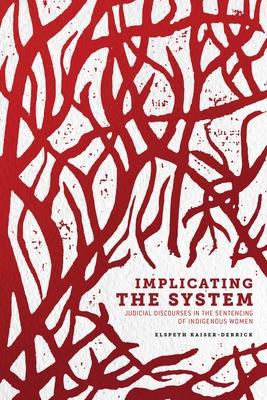Indigenous women continue to be overrepresented in Canadian prisons; research demonstrates how their overincarceration and often extensive experiences of victimization are interconnected with and through ongoing processes of colonization. Implicating the System: Judicial Discourses in the Sentencing of Indigenous Women explores how judges navigate these issues in sentencing by examining related discourses in selected judgments from a review of 175 decisions.
The feminist theory of the victimization-criminalization continuum informs Elspeth Kaiser-Derrick's work. She examines its overlap with the Gladue analysis, foregrounding decisions that effectively integrate gendered understandings of Indigenous women's victimization histories, and problematizing those with less contextualized reasoning. Ultimately, she contends that judicial use of the victimization-criminalization continuum deepens the Gladue analysis and augments its capacity to further its objectives of alternatives to incarceration.
Kaiser-Derrick discusses how judicial discourses about victimization intersect with those about rehabilitation and treatment, and suggests associated problems, particularly where prison is characterized as a place of healing. Finally, she shows how recent incursions into judicial discretion, through legislative changes to the conditional sentencing regime that restrict the availability of alternatives to incarceration, are particularly concerning for Indigenous women in the system.
